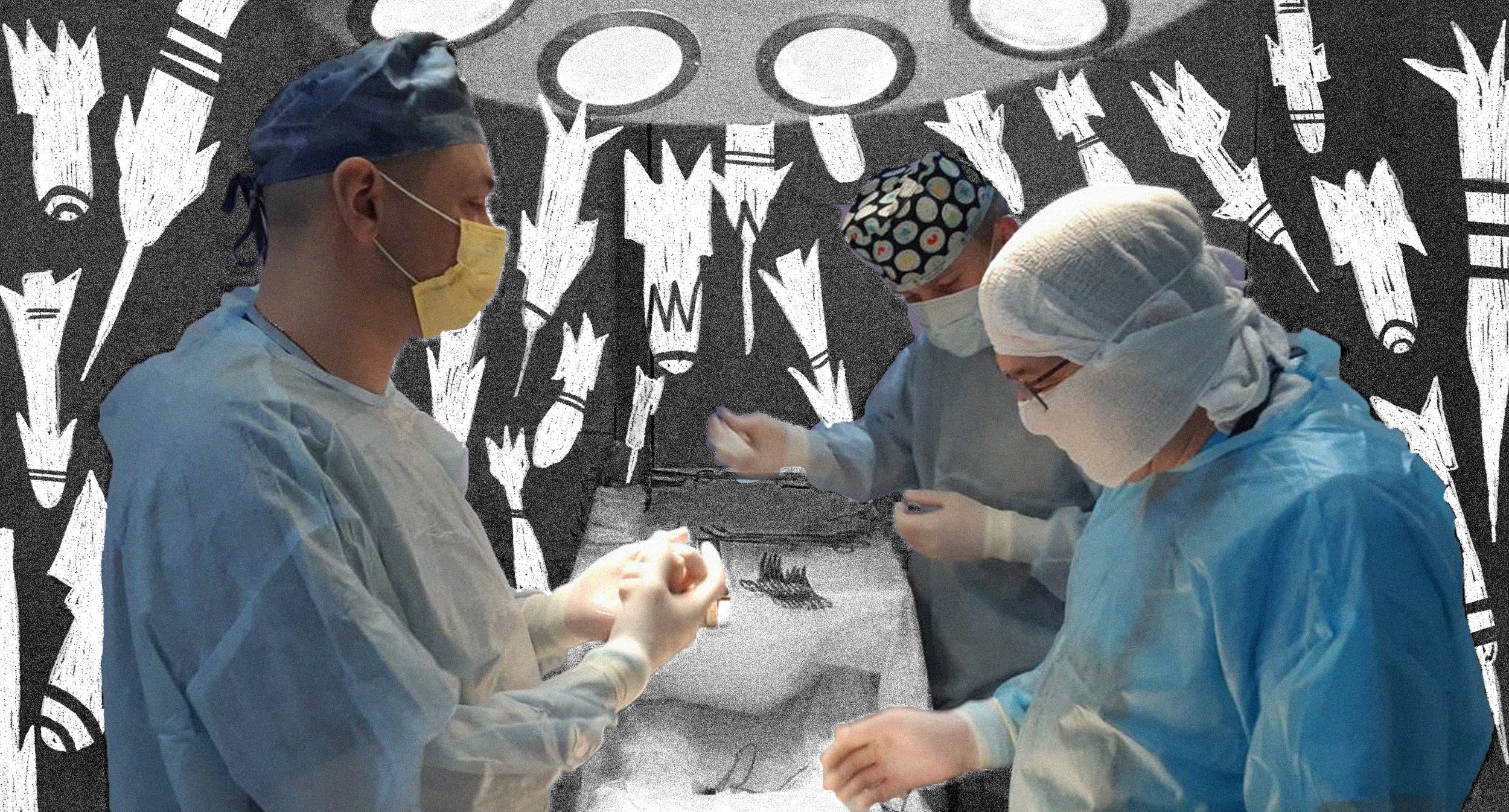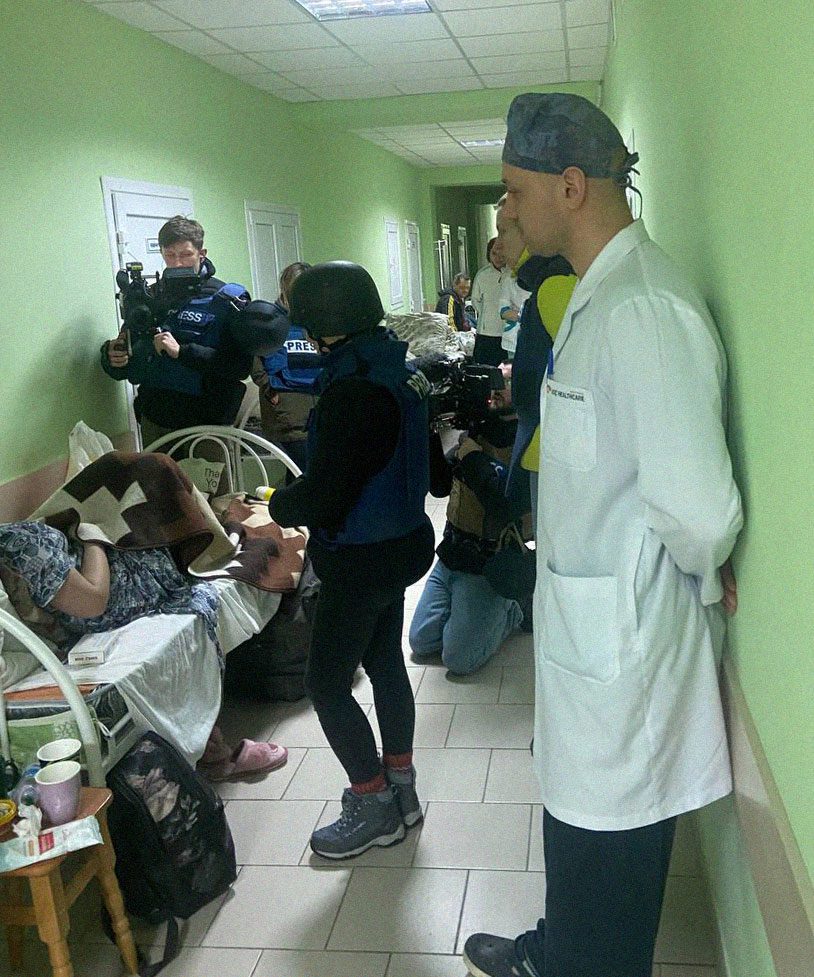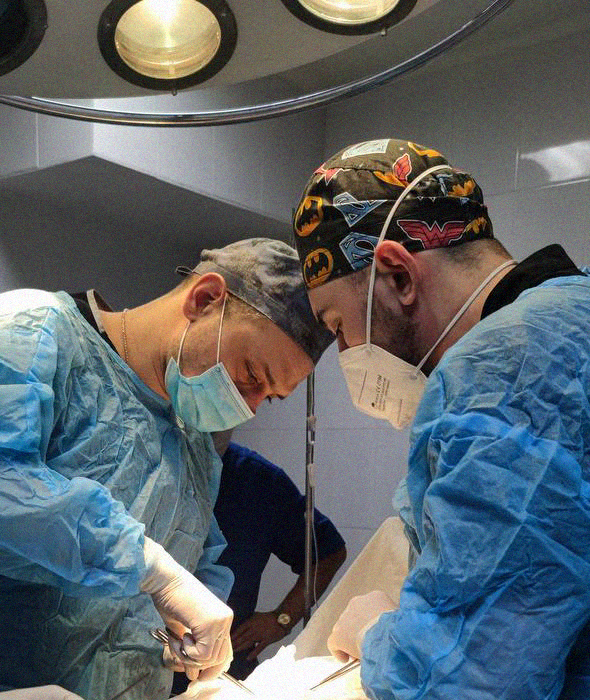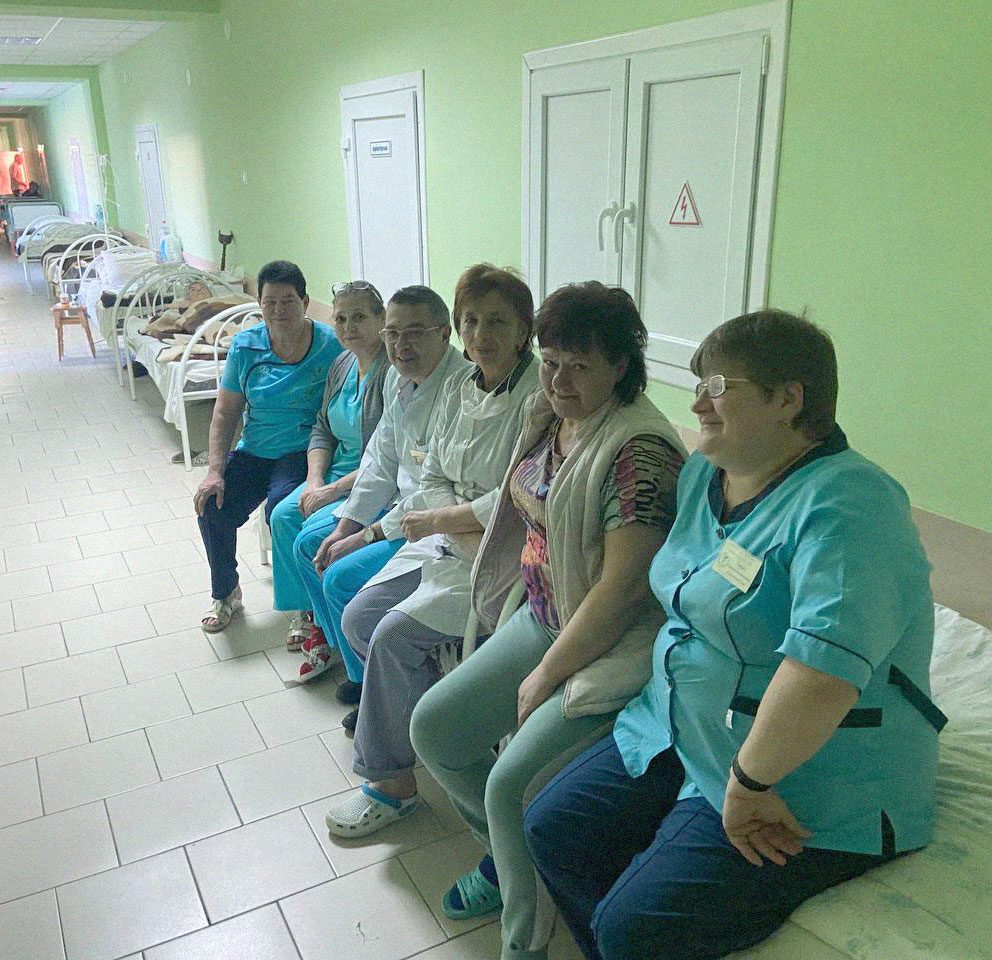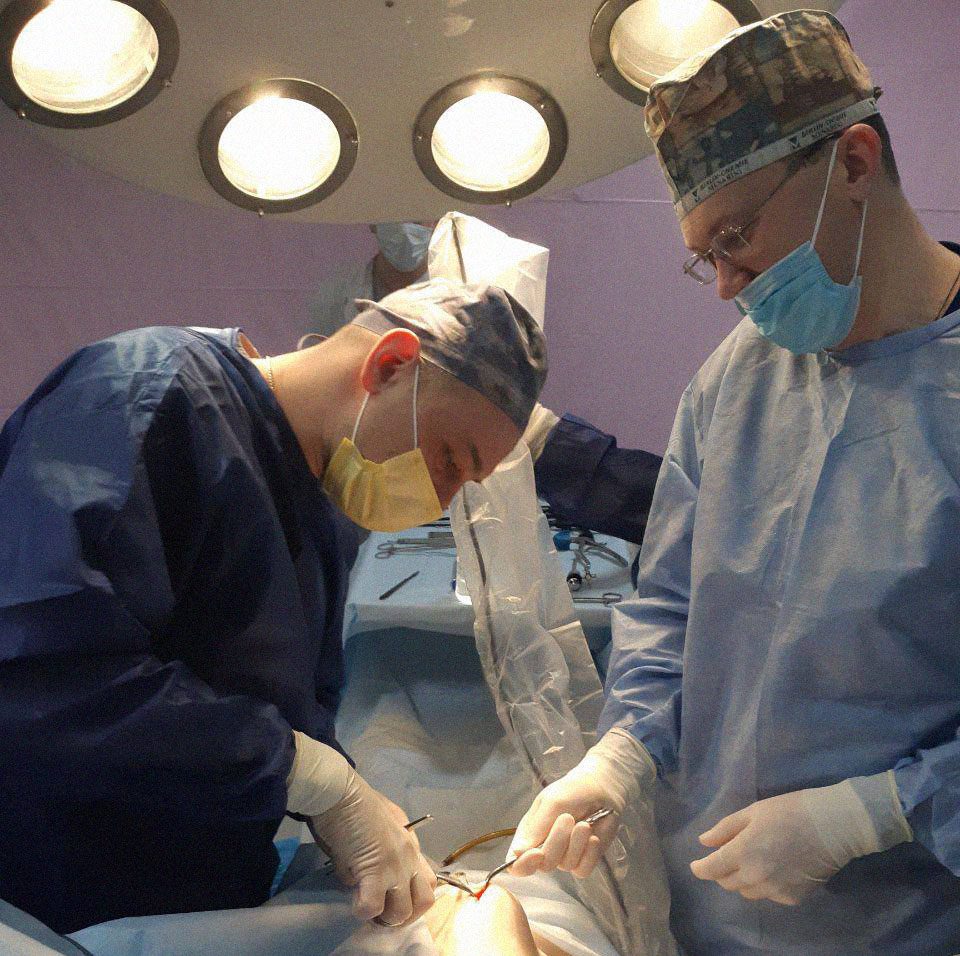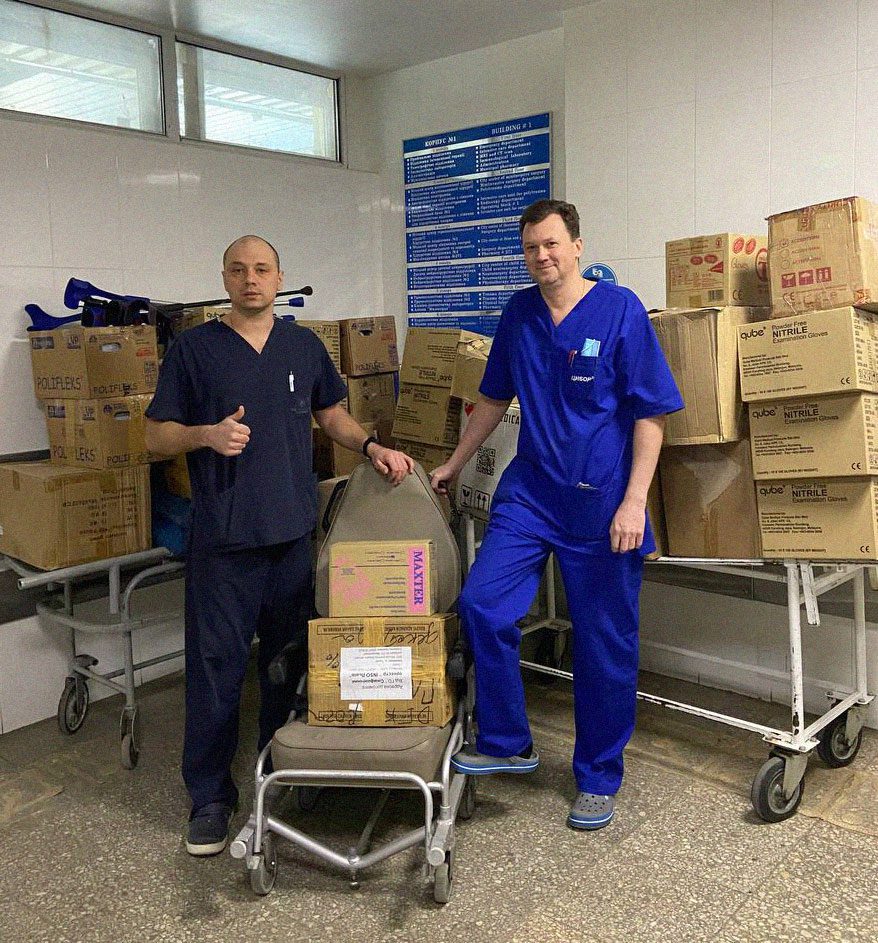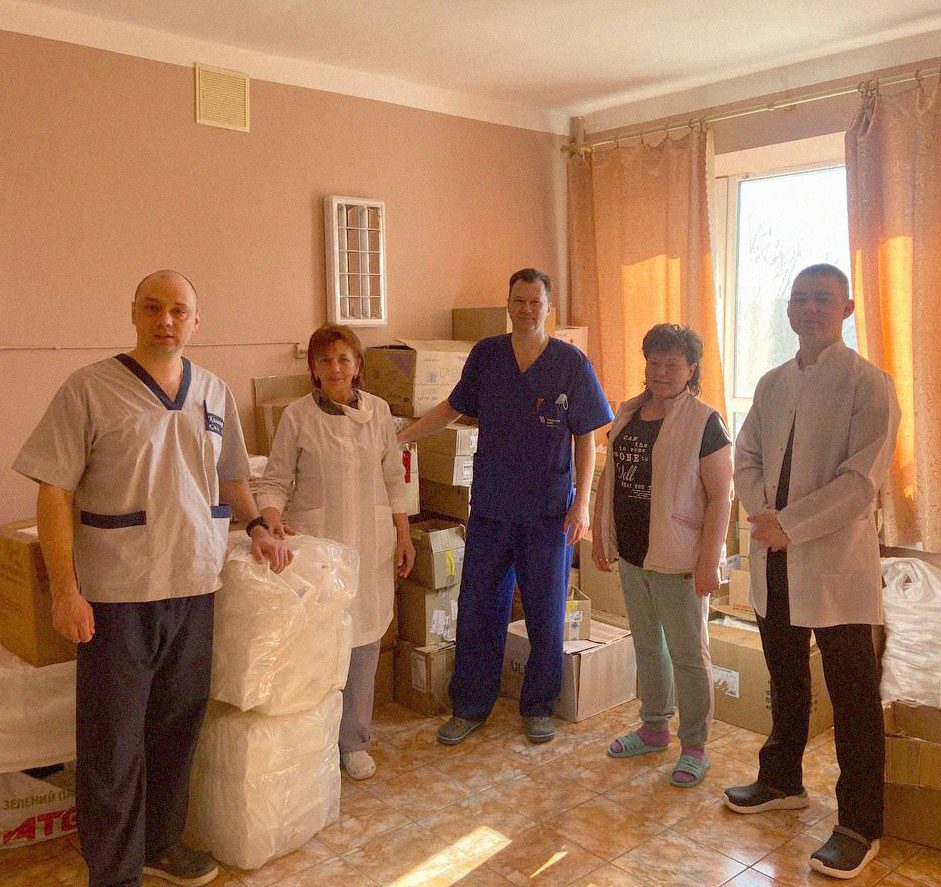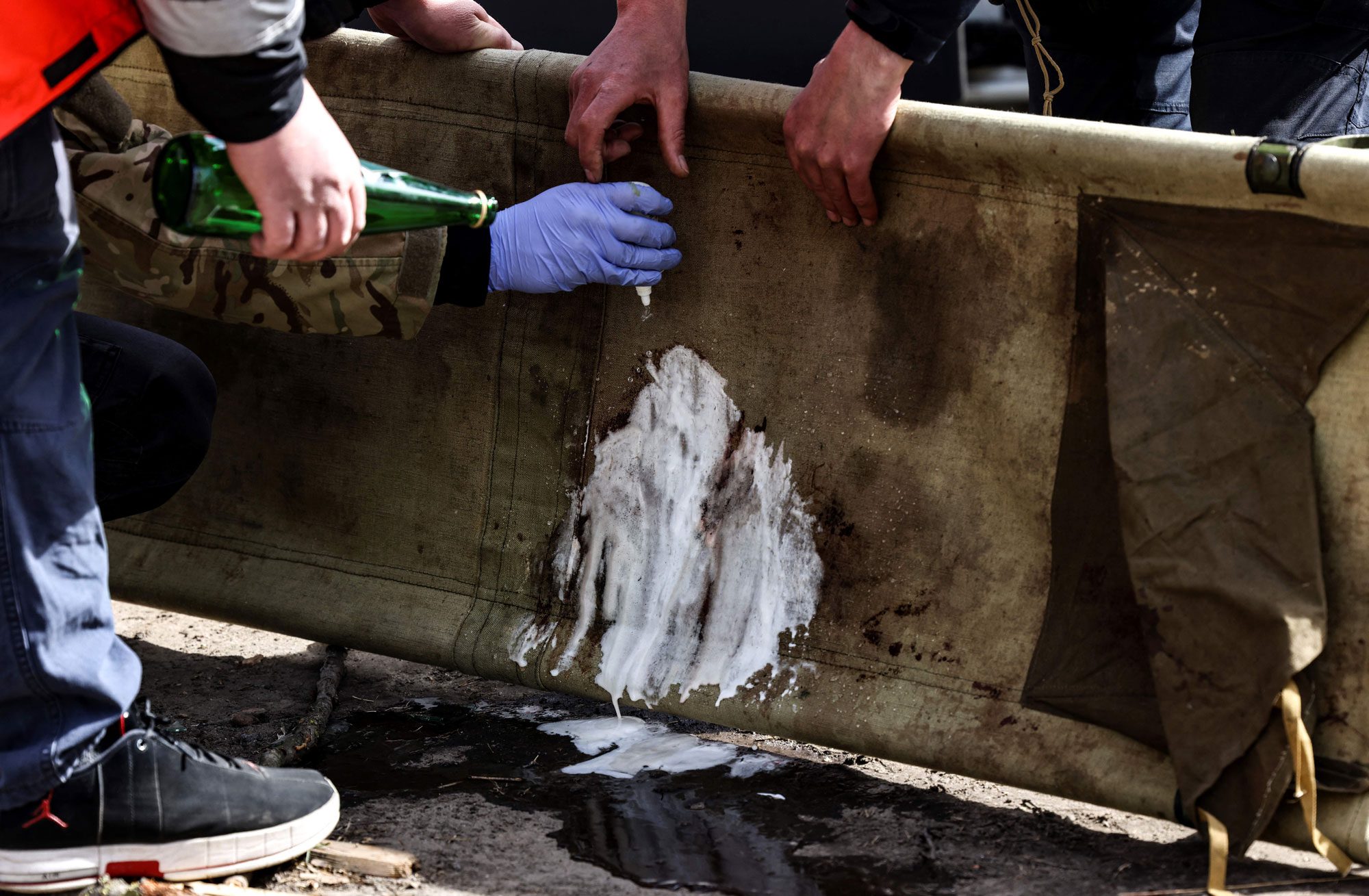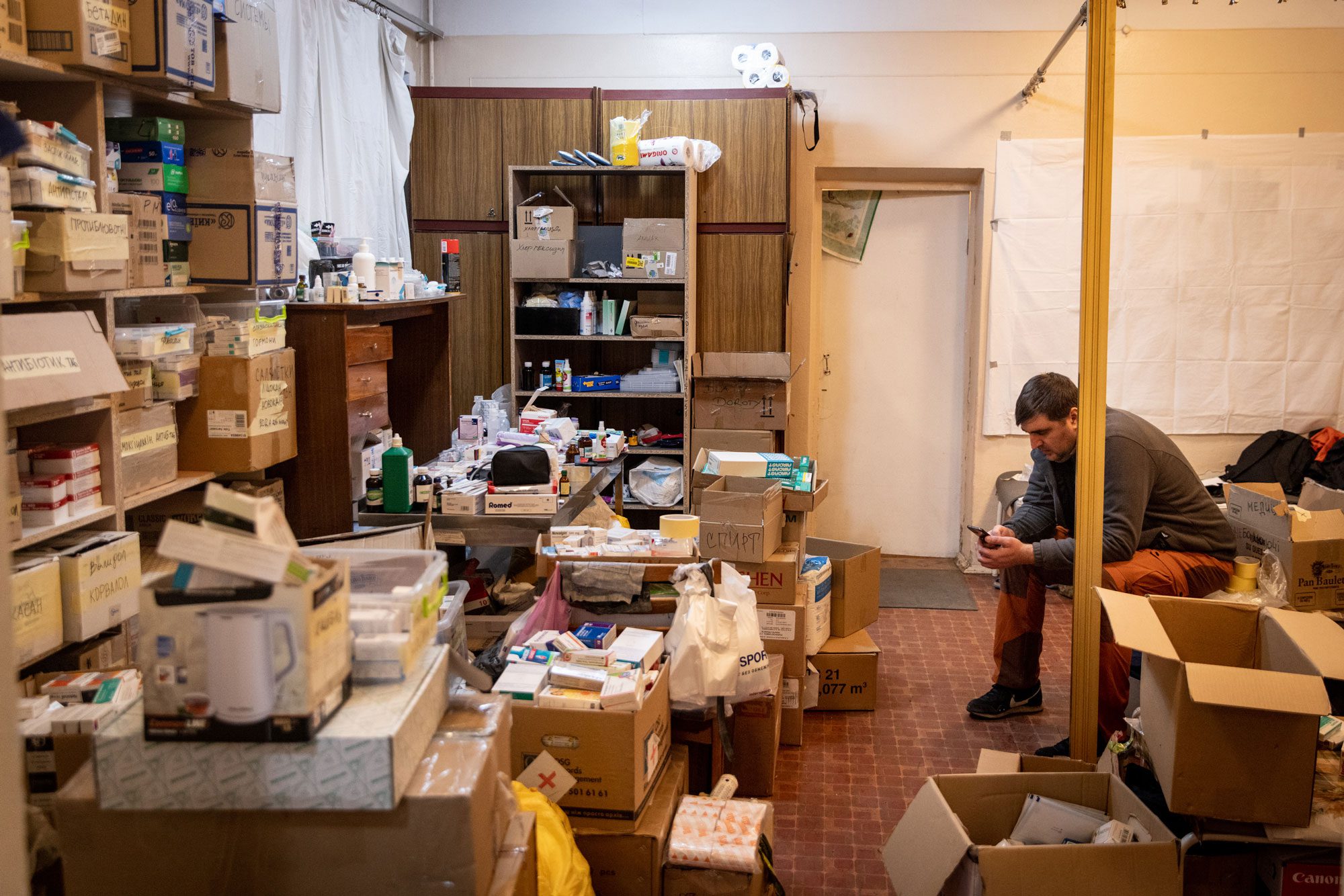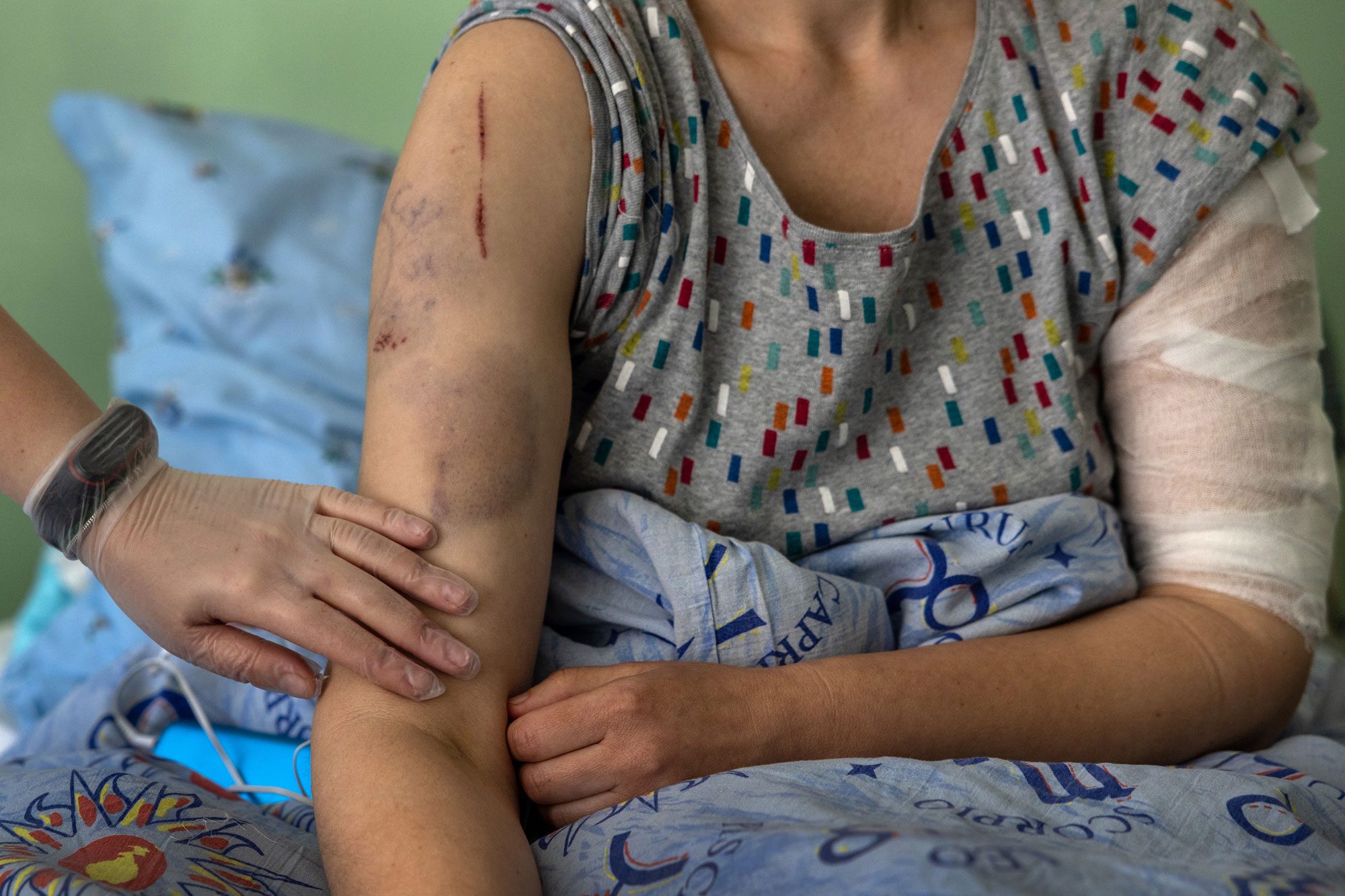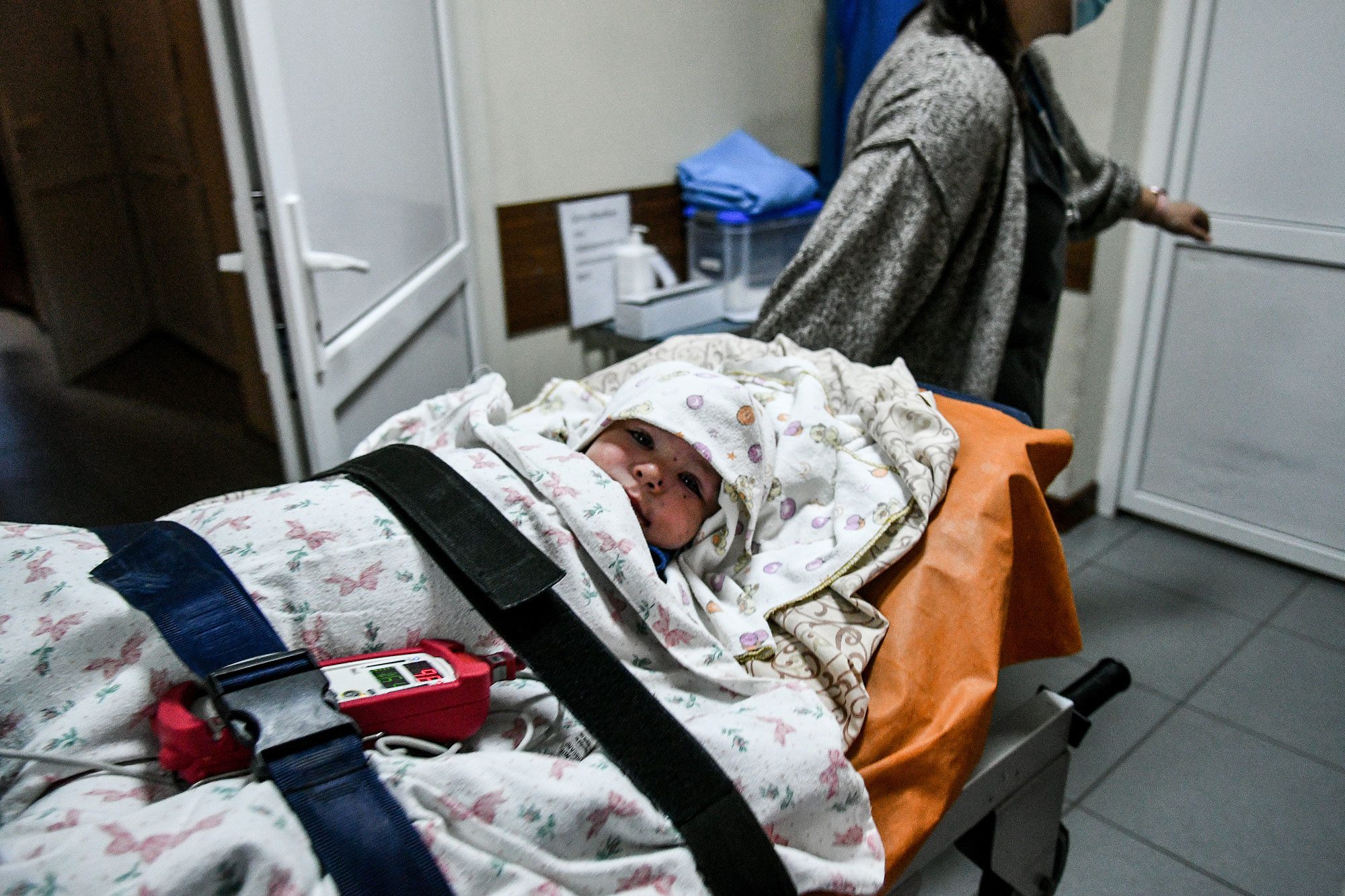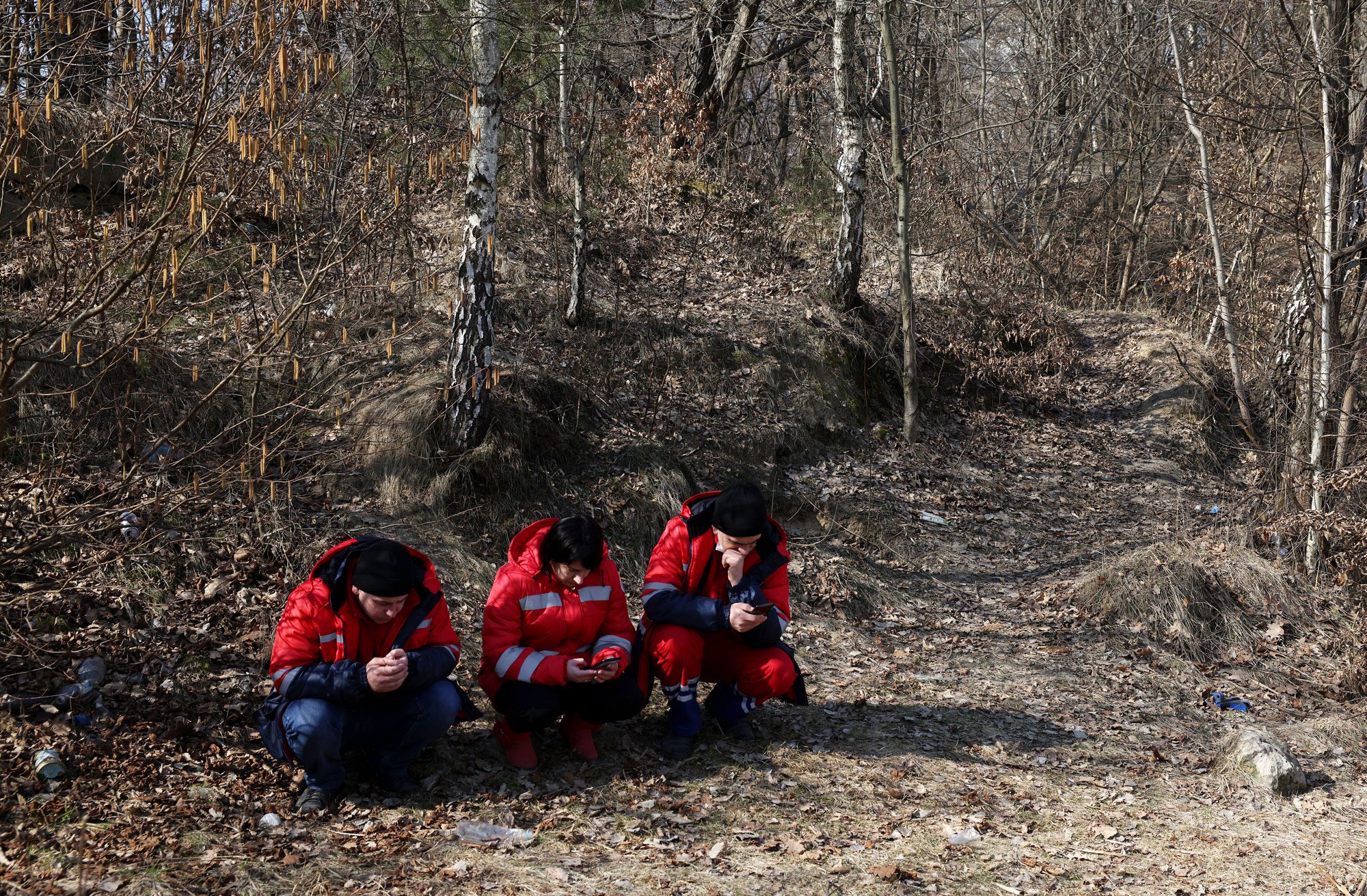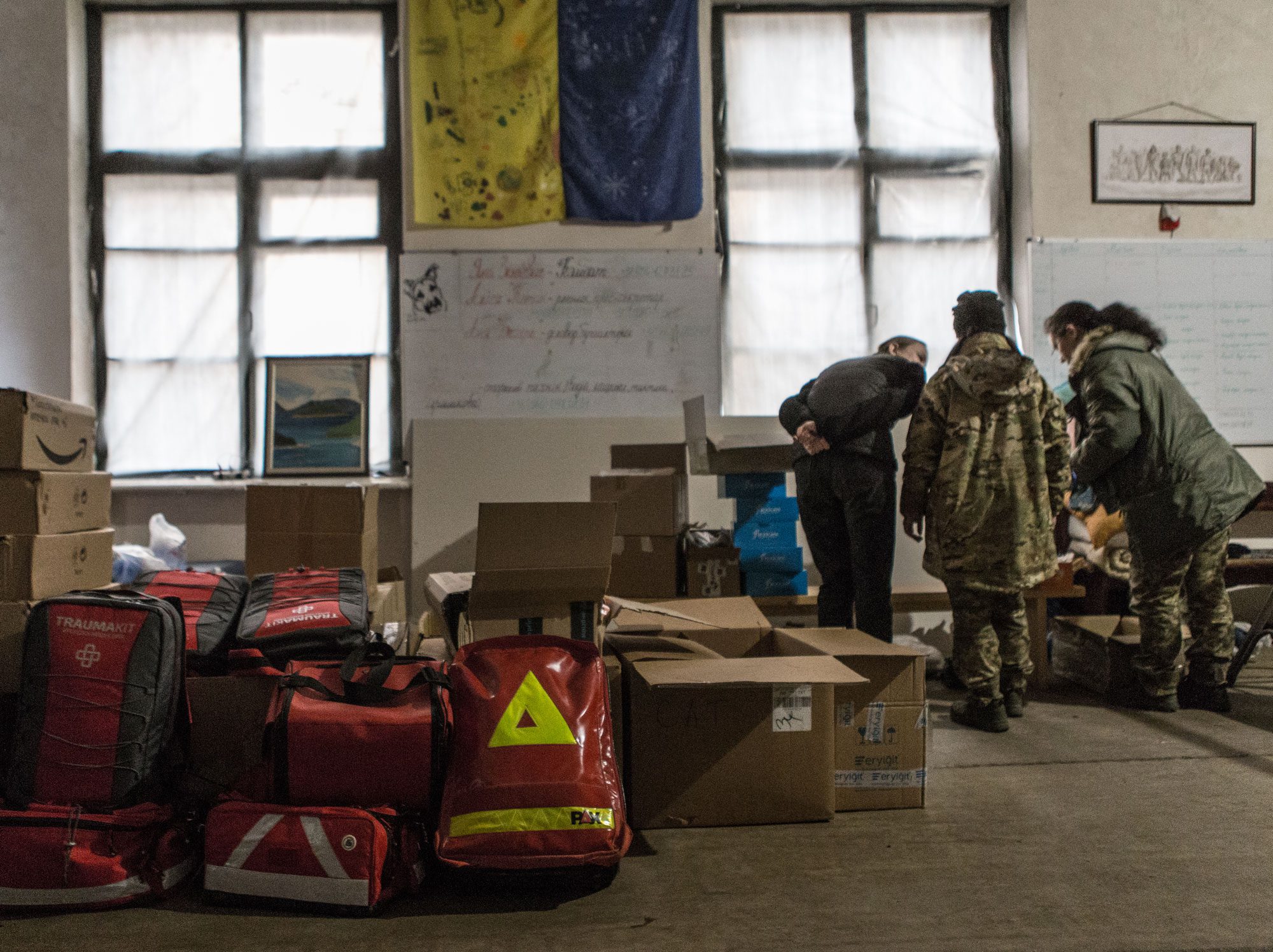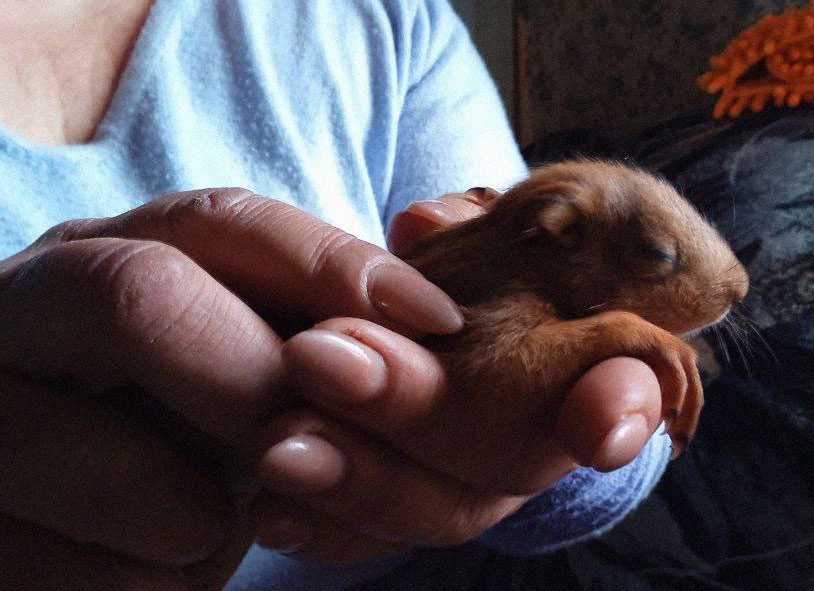Russia’s war against Ukraine has been going on for more than 70 days. All this time different people are fighting for the lives of Ukrainians not only at the front but also in the rear. We have already written about Kharkiv superheroes – a rescuer, a Red Cross volunteer, and a utility service worker who bravely do their job under fire every day. We also have made an article about a medic who saved people in Mariupol during the bombing and siege of the city. As for doctors, they save hundreds of lives every day. Zaborona journalist Polina Vernyhor talked to four doctors from different cities of Ukraine about their work during the war.
Mykhailo Klymenko, surgeon, Kharkiv
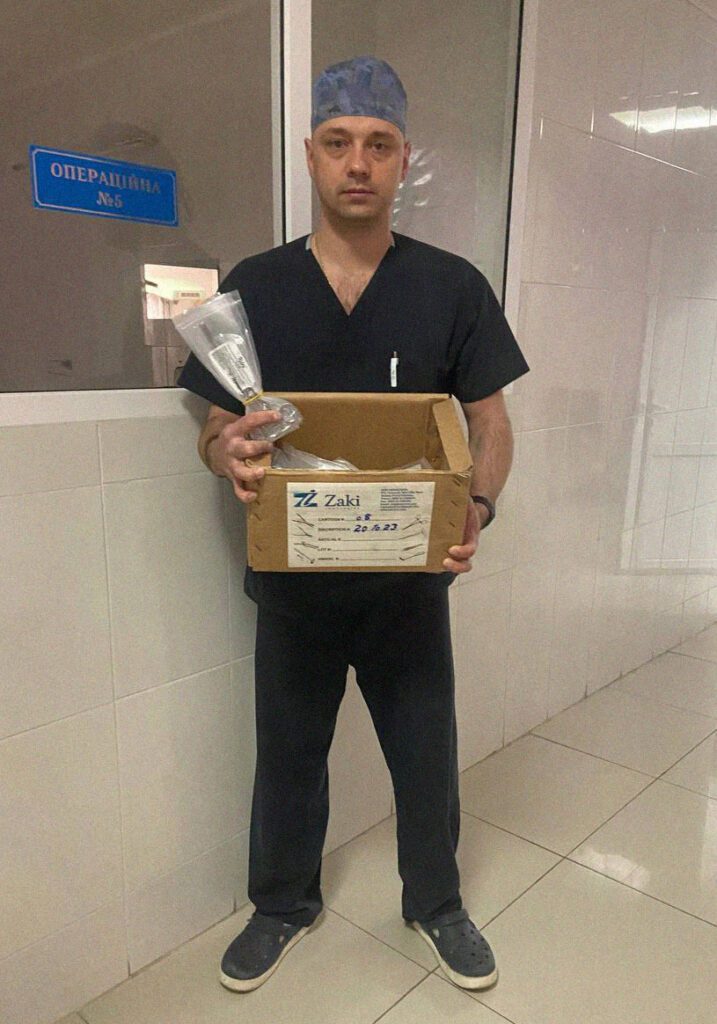
I’m a surgeon of the highest category, Ph.D. and associate professor of the Kharkiv Medical Academy of Postgraduate Education. I work in an emergency hospital. My specialty is general surgery, including purulent surgery. I mostly work with the abdominal and chest organs.
Like most Ukrainians, on February 23 I lived my normal life: I went to work, performed complex operations, and bandaged patients. In my spare time, he went swimming and played tennis with a friend. On February 24, at about 4:30 a.m., I woke up from the explosions. I immediately thought that the war had begun, and packed an “alarm suitcase”: documents, some food, and a surgical suite. I was on duty, so I went to work.
My colleagues and I have made a plan on how to protect our patients and how to get to work under fire. The beds were taken out into the corridor so that two walls were protected from the street, and critically ill patients were transferred there. Then they made a detour, bandaged whoever needed this, and explained the rules of evacuation to the bomb shelter.
-

Photo courtesy of Mykhailo
That night shift was difficult. Almost every hour the dispatcher called the staff room and reported the air raid alert. I went and warned everyone, asking patients who could move on their own to go down to the bomb shelter without panic. Critical patients, who could not move without assistance, mostly did not want to leave the corridor. I and all the staff on duty stayed with them.
The shelling continues chaotically throughout the city, including near our hospital. We strengthened the windows and walls. The operation can be performed only in a certain place – there is a need for oxygen and an anesthesiologist. If the air raid alert takes sound during the operation, we do not take the patient anywhere and continue to operate. We are already used to the sounds of explosions: it no longer scares us.
-

Photo courtesy of Mykhailo
The full awareness of what was happening came when patients with deep injuries, shrapnel wounds, etc. began to come to the waiting room. The most emotionally difficult was the duty on February 28. This is a day that is hard to forget: the enemy fired from Grad MLRS on a residential area near our hospital during the day. At that time, people mostly stood in line for food or water.
Then in a few minutes, about 30-40 heavy patients were brought by ambulance, because we were the closest point territorially. Each operating room was filled with patients, and all surgeons were called. Our departments worked as one well-coordinated mechanism.
-

Team briefing, shelling outside the window. Photo courtesy of Mykhailo
In principle, it’s hard to impress the surgeon – for over 11 years of practice I have seen everything, but this emotional tension and life stories are really touching.
Once, a patient named Katya came to us with a shrapnel wound to the small of the back and other injuries, after the operation, she remained in our department for further treatment. She is an ambulance doctor herself. After completing the shift, before going home, she decided to get some water. While standing in line, the shelling started. Katya began to help people: first, she took an old woman, and then her husband to a safer place, and told them how to stop the bleeding. Then she called an ambulance: she clearly said how many victims there were, what injuries they had, and how many elderly people were among them. Already at home, Katya noticed blood on her clothes, and then the wound itself, which she did not feel at first due to the adrenaline rush. She called an ambulance: spelled the address, opened the door, and laid down in the corridor waiting for the doctors.
I think this is a manifestation of heroism – Katya first took care of the rest, and then about herself. She was treated here for a long time; we all loved her as a colleague, as a heroine. When she was discharged, she wrote words of gratitude to me and other colleagues.
Another story happened when the dispatcher called and announced the mass arrival of patients, asking to take the additional gurneys for them. I went out together with another doctor, and his close friend was brought there wounded. Probably, Katya saved his life, because she called an ambulance very quickly. He received two severe shrapnel wounds and had to have his leg amputated. My colleague felt both anger and confusion for a friend who just went out to get some water. But, thank God, his friend survived, he is still being treated at our hospital.
In the eyes of these people who came under fire, one can read the simple question: “Why?”. It’s a thing that should not happen. And the most difficult thing in our work is to see all this and understand that if there was no war these people would live their lives in peace. They would not be injured, would not lose limbs. It is painful, unpleasant, and difficult to perceive.
-

Photo courtesy of Mykhailo
In about a few weeks, I was appointed acting head of the blood transfusion department. In my social network accounts, I announced the need to replenish the supply of donated blood. Many people responded to the post, and many came and really donated blood. I’m very proud of our citizens, the people of Kharkiv – these are strong and brave people who are ready to help in a difficult moment.
-

Receiving humanitarian aid from volunteers. Photo courtesy of Mykhailo
We take only what is necessary, and share other things with our defenders. We give them turnstiles, medicines, and tourniquets – all so that the guys could be provided with primary medical care. We have repeatedly conducted tactical medicine training for our defenders and law enforcement.
Medical unity is inspiring – we saw it before the war, but now it has become even stronger. I am proud that we stayed to fulfill our duties. Many have been living in the hospital since the first day of the war: administration, managers, and junior medical staff. We continue to provide medical care not only to the wounded but also to other patients in need of emergency medical-surgical care. War is war, but people still have acute diseases.
-

Photo courtesy of Mykhailo
Ivan Gromyak, military medic, Donetsk region
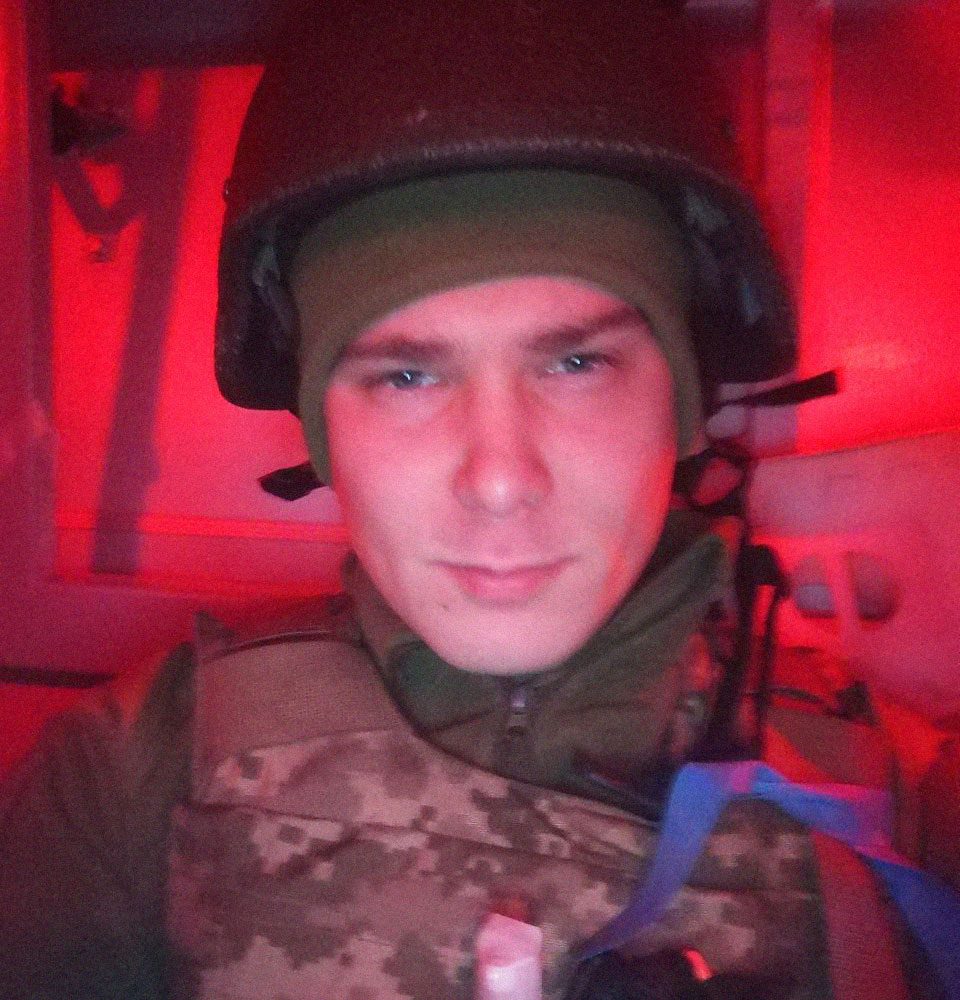
I signed a contract with the Armed Forces of Ukraine in December 2020. I have been in the Joint Forces operation area for ten months. Battalion medics provide emergency care: they apply tourniquets, stop bleeding and deliver the wounded to a certain point. There we pick up the wounded and provide qualified assistance: completely re-bandage them, connect the drips, and give drugs. After that, we deliver patients to the hospital. This is one of the stages of the evacuation of the wounded.
We learned about the beginning of the war a little earlier – on February 23 at half-past eleven at night, when a shell fell at the window [in our unit]. Then they started firing at us with Grad MLRS. Before that, the area where we were was quiet.
When the enemy started to attack, we packed up and ran to the dugout. Such shelling lasted about two days, and then a breakthrough followed. Our brigade had to retreat a bit. Everyone was scared – I will not believe a single person who says that he was not afraid.
On the site where we were deployed, there were villages in which people lived. Now the village where we stood is no longer there – it was completely razed to the ground. There the fighting continued for more than a month. Only dust remained.
We have several crews who went on calls. They were scattered at different points. Whoever was closer, left. My active work started on the fifth day when we backed off a bit and arrived at a different location.
I don’t remember the first call anymore – there were a lot of them. There could be one call with the message about one injured. Or it may be that you arrived to take 1-2 wounded, and they brought you 12 – you can’t leave them. There were many contusions, barotraumas, and shrapnel wounds.
-

Doctors clean the bloodstain on the stretcher after the transfer of the wounded woman on March 28, 2022. Photo: Rolando Schemidt / Getty Images
The Russians pelted our area with prohibited weapons [probably cluster bombs]. This was evident from the nature of the wounds – not the same as from ordinary mines. It was difficult to stop the bleeding after such fragmThe hardest thing is to endure everyone’s pain. You have to support people, and keep in touch so that they don’t faint. You have something to say, to talk about. Medical work itself is not as difficult as its psychological component. You have to listen to them all the time. ents.
The hardest thing is to endure everyone’s pain. You have to support people, and keep in touch so that they don’t faint. You have something to say, to talk about. Medical work itself is not as difficult as its psychological component. You have to listen to them all the time.
Once I drove a wounded military – he was 2-3 years older than me. I was together with my colleague: so there is a soldier and his legs separately near him on a stretcher. I understand that I can’t support him morally, no matter how much I want to – he sees his legs and understands that he has already lost them.
I try not to memorize all these stories, otherwise, I may lose my mind.
The most painful experience for me was when I was sent to the front line. I was assigned to the chief of the battalion’s medical service. He had two medical girls – they were sent away because it was very difficult and they couldn’t stand it anymore. He needed a doctor. Since I have a higher medical education, they decided to send me for help.
I lived there with the soldiers for three days, constantly under fire. I saw how tired, dirty, but not broken they were. There, people sleep for a maximum of 1-3 hours, replacing each other, because the battles are constantly going on. During these three days, we were shelled for 15-20 hours a day. They fired from everything there was: Grads, tanks, Uragans, aircraft. All I could do was help them, support them, and somehow joke so that they would not lose heart.
When the medicine runs out, it is being delivered by the medical company through the ways of evacuation. These ways are developed by chiefs of medical service, and commanders of brigades. Certain crews that take out the wounded agree on the points of load and deliver medicine. If there are no active hostilities, the car from the battalion goes to the medical company, picks up everything they need, and goes back. If the fighting continues, the medical company usually takes it all to the hospital.
-

The combat paramedic sits among the donated medicines, March 11, 2022. Photo: Chris McGrath / Getty Images
Lilia Sarakhman, family doctor, Kherson
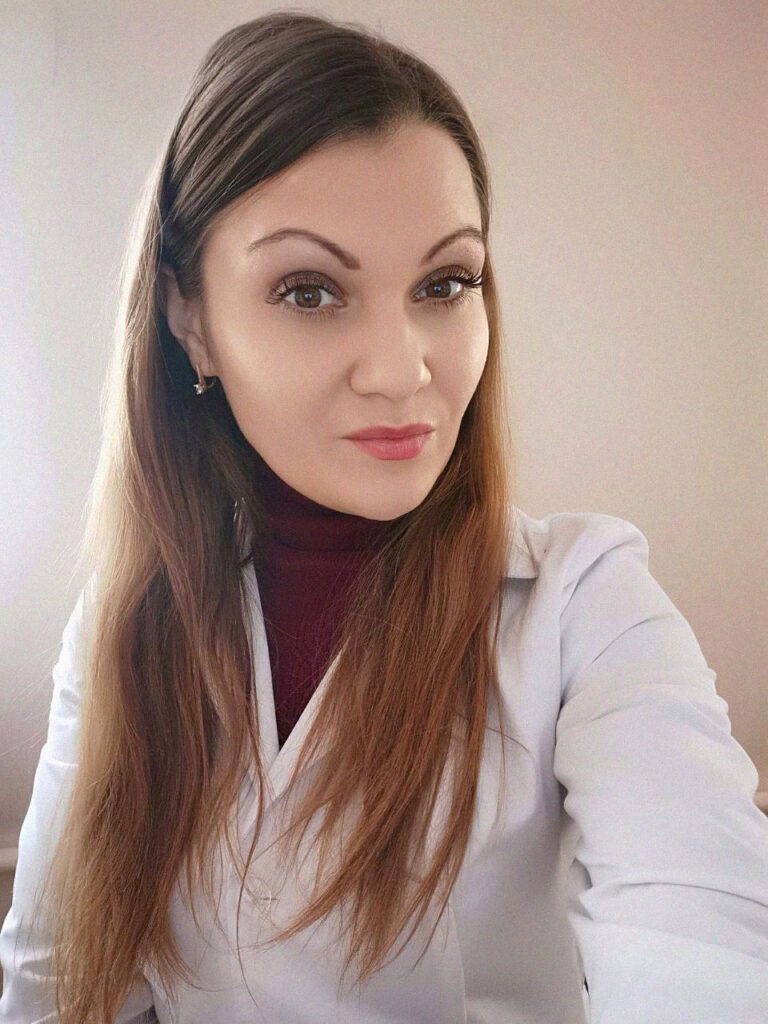
I work as a family doctor in the Kherson City Clinical Hospital named after Afanasy and Olga Tropin. On the morning of February 24, my family and I woke up to the sounds of explosions. Our house is located near the Chornobayivka airport, which was the first to be bombed in the Kherson region. Then we read in the messengers that the war had begun. But we decided to go to work – the war is a war, but sick patients are still waiting for you.
However, almost none of the patients were in the outpatient clinic that day. A rush began in the city, everyone massively began to withdraw cash from ATMs, and there were long queues.
At first, we worked mostly remotely: answering phone calls, and talking remotely to patients. Already in the second or third week of the war, patients began to come to the clinic.
So before March 4, I worked remotely, because there were active battles in the city. Then everyone started going to the office – me too. The work was organized somewhat differently because Kherson was already under occupation.
There were fewer and fewer medicines in pharmacies every day. There were no new supplies, and the Russian military did not provide humanitarian corridors. We agreed with doctors and volunteers from European countries and western Ukraine to bring us humanitarian aid. But nothing came of it. Even the official authorities could not agree with them, so we sat without medication for almost a month and a half. Only recently a truck with humanitarian aid arrived. But for a city like Kherson, it’s almost nothing.
One patient from a village near Kherson contracted pneumonia. She was very sick, we could not find the right medicine, and unfortunately, she died. We just didn’t know what to do. Initially, patients were advised to reduce the dose or take medication every other day.
Sometimes we even resorted to folk methods – herbal medicine, for example. Although this is not evidence-based medicine, in the realities of war it was simply impossible to get out of the situation in any other way. It also happened that when patients with high blood pressure came, we offered intramuscular injections of magnesium to stabilize the condition at least a little. Or, say, when an antibiotic is needed, the tablet form is prescribed first, because injections usually do not have the same effect. Of course, the pills were sold out in the first days of the war, so we offered patients to find at least something because there was no other way.
There are a lot of consultations and requests for psychological support now, especially from people of retirement age. But the mood of most of my patients is combative. Everyone is waiting for the Armed Forces of Ukraine to liberate the city. Nobody wants to live in the occupation, to live under Russian flags. People’s problems are mostly related to anxiety – no one knows what to expect tomorrow.
From the beginning of the war, in addition to the outpatient clinic, I worked in the emergency department of a hospital. There was a lack of specialists there because some doctors left Kherson, and our hospital is the main institution in the region for coronavirus infection treatment. When the war broke out, our hospital was closest to the front line. That is, the wounded – especially civilians who managed to escape from that hell – were taken there.
-

Examination of a woman affected by the shelling on April 5, 2022. Photo: John Moore / Getty Images
I was on duty there once a week. My responsibilities included a basic examination of the victims: measuring blood pressure, and level of oxygen with a pulse oximeter, auscultation of lungs, and heart, and examining the abdomen to see if there was, for example, internal bleeding. Then patients were transferred to the specialists: surgeons, anesthesiologists, traumatologists, etc.
On my first day in the hospital, two vehicles brought wounded civilians to us. These were people from the surrounding villages near Kherson who were trying to get out of there, and their cars were simply shot. Then came a woman and her husband, aged about 50-60 years. The woman was injured – a shrapnel wound to the shoulder. We examined her and sent her to traumatology, where she underwent surgery. The second family was a young couple with a one-year-old boy. The first thing that caught my eye was the child’s clothes, it was covered in blood. There were shrapnel wounds almost all over his body, including his head. We quickly examined the child and sent him by ambulance to the children’s regional hospital, where neurosurgeons were waiting for the boy. Fortunately, the examination showed no brain damage, the skull bones were intact. His parents received medical care too.
-

Baby on a stretcher at Zaporizhzhia Regional Children’s Hospital, where children seriously injured by Russian shelling have been brought, April 28, 2022. Photo: Dmytro Smolyenko / Getty Images
Sometimes, the Russian military brought wounded civilians. Among them was a woman in her eighties with an open craniocerebral injury. Unfortunately, she could not be saved.
As doctors, we did not communicate with the invaders. They were contacted either by the head of the reception department or the chief physician. Even if they came to us and said something, the first thing we answered was that we are doctors, and we do our job. And that’s why they didn’t touch us.
As of April 23, when my family and I were still in Kherson, there were no Russian servicemen in the hospital. They talked to the chief doctor so that the hospital would prepare an award for them, which would be arranged purely for their needs. But none of them got into this ward.
It was scary every day. Each new day was a new test. But we did not give up; we fought and continued to help patients. In fact, it is very difficult to work in the occupation when you have nothing and there is nothing you can do about it.
My family and I decided to leave at the end of April. We have two young children, and the shelling sounds very close every night. It is very difficult to live in the corridor. I thought that if I had no children or if the children had been in Ukrainian-controlled territory since the beginning of the war, I would have stayed. I left with great anxiety that I was leaving this city and my patients.
Volodymyr Ponomarev, X-ray laboratory assistant, and paramedic, Sviatohirsk
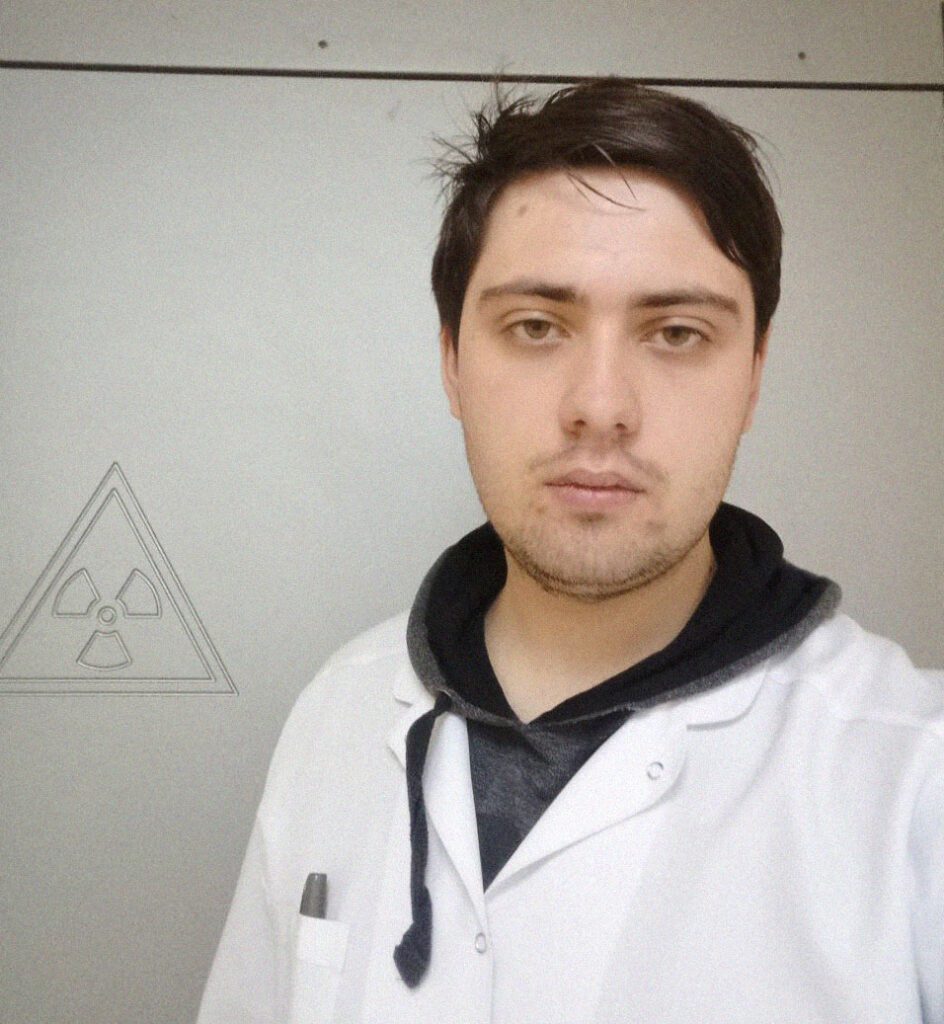
I’m a student, studying at Luhansk Medical University in my 5th year. On February 24, I was in Rubizhne. My mother called at about five in the morning and said that the war had begun. At first, I did not understand what was happening. I woke up, sat down at the laptop, and started scrolling the news. At about 6 o’clock they hit Rubizhne twice. The windows in my house almost shattered.
At that time, I was volunteering at the Red Cross, so we were all summoned immediately. We discussed everything and decided that the plan in case of war we had come up with earlier would not work, because most of us had left.
In the first days of March, I received a call from the Sviatohirsk Hospital for War Veterans and was offered the position of an X-ray technician. I was born in Sviatohirsk; so my mother came to Rubizhne and took me with her. She said that at checkpoints she was looked upon as obsessed: everyone was leaving the Luhansk region, and she was going there.
The military hospital in Sviatohirsk was reconstructed in the 2010s. Since then, it has been working as a rehabilitation center – there are many patients of retirement age and in general, everything is more or less calm.
In Sviatohirsk itself, everything was calm too, because there was no shelling. But the war came to us on the night of March 13, when the Russians fired at the Sviatohirsk Lavra from the sky. The Lavra itself was damaged, and several children’s camps were destroyed, but fortunately, they were not inhabited at the time.
Many people left Sviatohirsk at the beginning of the war, including medical workers. But even before the war, the situation with doctors was difficult here. At the beginning of the 2000s, there was a therapeutic department, two clinics, and a military hospital. Then one clinic was reduced and the other was closed altogether. In 2019, local authorities closed the therapeutic department №3 to save money.
As of February 24, there was one polyclinic and hospital in the city, which functioned as a rehabilitation center. So, there was only one family doctor in the clinic. The head of it – the chief doctor – simply left her workplace and left the city.
Only those employees who live in Sviatohirsk went to work at the hospital. There are rehabilitators who traveled from Slovyansk, but when the war broke out, it became very difficult to get there. Therefore, only a surgeon, a neurologist, and a therapist are among the doctors in the hospital.
The ambulance drove from Slovyansk to nearby villages and the city while they had fuel. We met with volunteers and organized a medical headquarters. They were trying to bring medicine to the city and distribute it among the population. As a paramedic, I take calls instead of ambulances. I go mostly on foot, during the curfew I call the Territorial Defense and coordinate the route with them. While the front line was relatively far from the city, during the curfew they took me to the sick patients and, if necessary, took them to Slovyansk or Kramatorsk. When the shelling approached these settlements, it became dangerous to go there.
-

Doctors found a low-lying area after the sound of a siren and an air raid on March 13, 2022. Photo: Dan Kitwood / Getty Images
There are few calls now, and my trips to the sick patients are generally quiet and peaceful. The most stressful was going to the bomb shelter after a knife fight.
The most difficult thing is working with children. Situations with children are always stressful. Every free hour I try to re-read all the medical books, I think about how to treat these things, because I have never worked with children before. In children, the pathology is different from in adults. Diagnosis is half the battle, but if an adult can be given standard doses, for the child you should calculate them according to their weight and age. But everything went well.
-

Volunteer doctors. Photo: Andrea Carrubba / Getty Images
At first, I was more or less calm at work in the X-ray room. But a month later, patients with pneumonia began to arrive frequently. I think this is due to the fact that people have long been hiding from shelling in damp basements. Now the situation has significantly improved.
One day they brought me a little squirrel. We already had a squirrel at home. And here recently the wind and a hurricane started, and this kid has fallen out of his house – he was a few weeks old. People who found him learned through acquaintances that we already have a squirrel, so they gave the baby to us. We fed him, now he lives with us. Therefore, it turns out that we save not only people but animals are our smaller brothers.
-

Photo courtesy of Volodymyr

